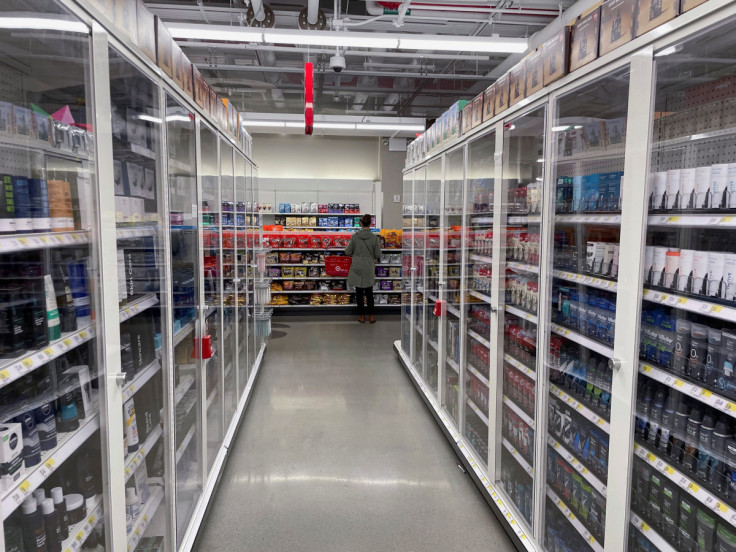Recent analysis exposes retailers' insufficient commitment to diversity and inclusion
A new study reveals that although retailers are prioritising diversity and inclusion (D&I), concrete progress remains elusive in the UK retail sector.

In a recent study titled 'Diversity and Inclusion in UK Retail', the British Retail Consortium (BRC) and The MBS Group revealed that while retailers are increasingly focused on diversity and inclusion (D&I), tangible progress remains elusive.
The report, which examines the state of diversity and inclusion in the retail sector in 2023, points out the need for substantive action in the retail industry.
According to the analysis, 93 per cent of retailers have developed plans to enhance diversity and inclusion across their businesses, expanding their scope to address social mobility and disabilities. However, despite these intentions, only 66 per cent of retailers have established concrete goals for monitoring D&I's success.
Gender diversity in leadership teams falls short of the FTSE 350 threshold of 40 per cent, with a figure of 37.8 per cent, and over 30 per cent of boardrooms remain all-white. Furthermore, the sector lacks disabled business leaders, with only 17 per cent of retailers able to name one.
The report did not fail to mention the pressing need for retailers to move beyond launching initiatives and focus on evaluating their impact, prioritising strategies that yield measurable results. The BRC, the trade association representing UK retailers, emphasises that while having a defined strategy is crucial, it is only the initial step towards driving meaningful change in the realm of diversity and inclusion. Retailers must continually assess and adjust their tactics to make the greatest impact, according to the BRC.
Additional notable findings from the report showed that since 2021, the percentage of board representation representing different ethnic groups has climbed from five per cent to 10 per cent. The survey stated that 30 per cent of retail boards are still all-white, compared to the FTSE 100's 4 per cent all-white boards. Gender diversity on boards has increased by more than 5 percentage points since 2021, reaching 37.8 per cent.
The study also revealed that 80 per cent of retailers prioritise disability in their D&I strategies, up from 50 per cent in 2021. The workplace has seen progress in terms of individuals feeling comfortable identifying as trans, non-binary and gender-fluid.
Social mobility is now part of 65 per cent of companies' D&I strategies, a significant increase from 20 per cent in 2021. Moreover, the report indicates that 64 per cent of businesses can identify at least one senior leader from the LGBTQ+ community, compared to 47 per cent in 2022 and 27 per cent in 2021.
The research, which focuses on oversight, recruiting, progression, reporting, inclusivity and responsibility, also explored the obstacles to advancing D&I in the retail sector. Challenges such as lack of data, inadequate funding, and potential employee backlash were identified.
Additionally, the report highlighted successful best practices and policies that have been implemented thus far, including employee resource groups, action plans, designated D&I leaders, and investments in training.
Helen Dickinson OBE, Chief Executive of the British Retail Consortium, acknowledged the progress made so far, but emphasised the need for more substantial change, as she said the progress made so far has not properly changed the dial. She expressed satisfaction with the increased activity and broad coverage of D&I initiatives across all diversity characteristics. She issued a warning against becoming complacent, emphasising that the ultimate objective is for every person to have an equal opportunity to succeed in the job, regardless of their background.
Dickinson urged retailers to concentrate on the effects of their decisions in the actual world, regularly assessing their efficacy, and, as necessary, considering new techniques. She asserts her confidence in the industry's ability to drive the desired change and eagerly anticipates the sector's response to this challenge.
"Nonetheless, I am confident that we can deliver the change we aspire for, and I am excited to see the industry rise to the challenge," the Chief Executive Officer added.
Elliott Goldstein, Managing Partner at The MBS Group, also lauded the priority retailers are placing on diversity and inclusion, saying that 93 per cent of retailers, currently, have a coordinated D&I plan in place. However, Goldstein highlighted the need for more accelerated progress to ensure that retail leadership accurately reflects the diverse clientele it serves.
Despite the high level of D&I activity, he emphasised that change is not happening quickly enough. Goldstein advised retailers to assess the outcomes of their D&I efforts, make adjustments where needed, and align their investments with the most impactful strategies, just as they would with any commercial objective. He concluded with optimism that through intentional and urgent action, progress can be achieved.
© Copyright IBTimes 2025. All rights reserved.





















